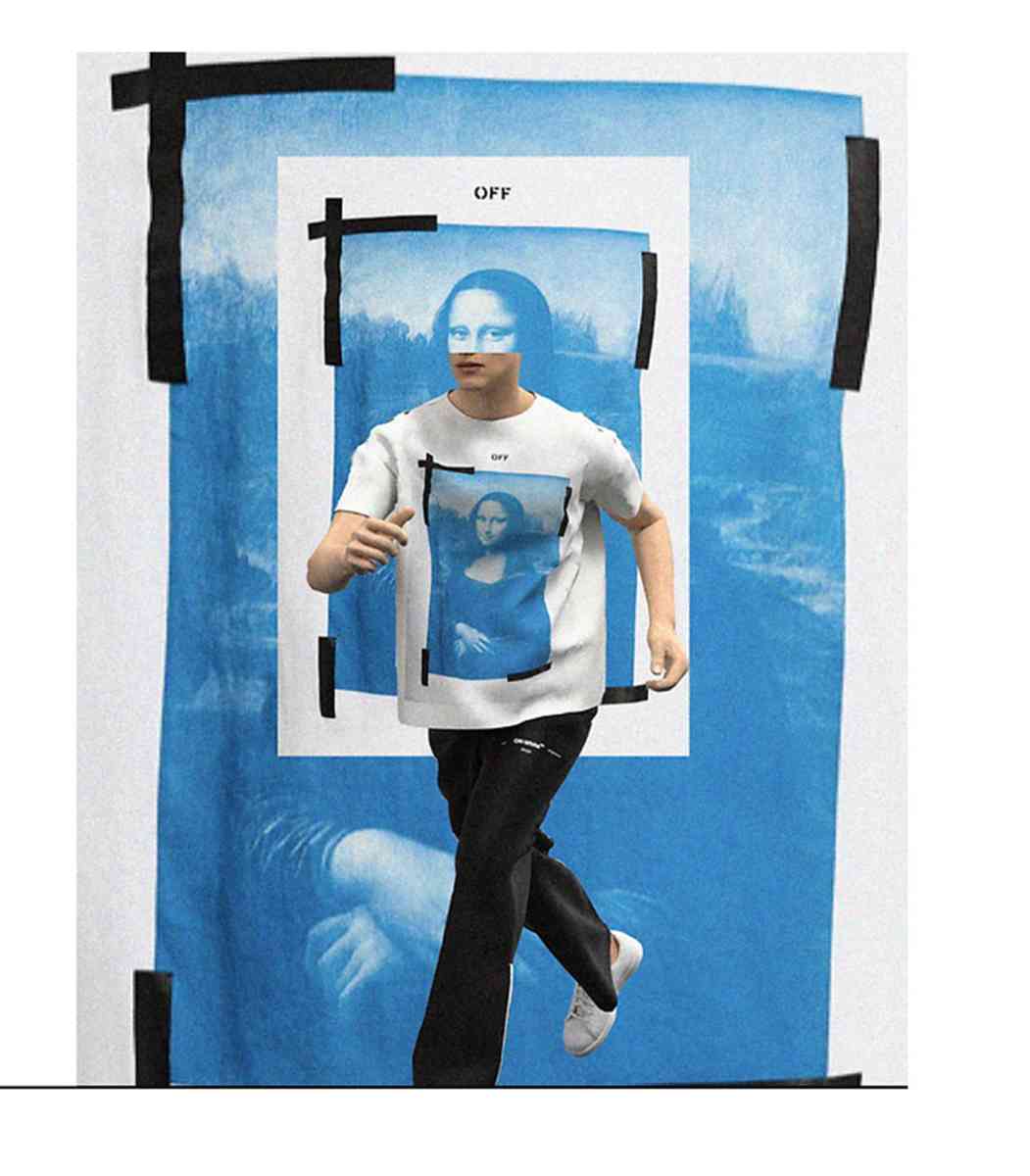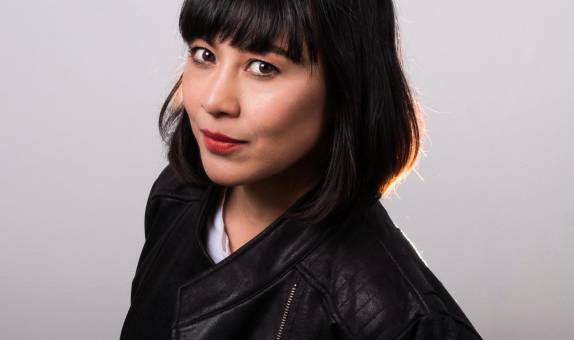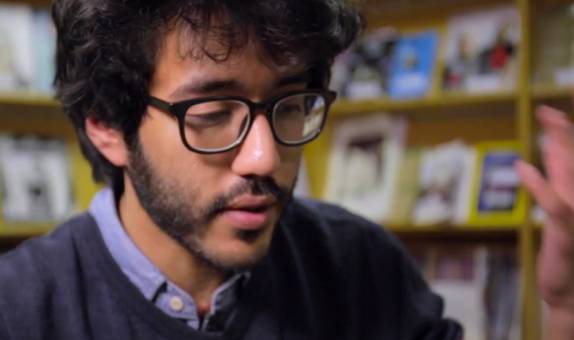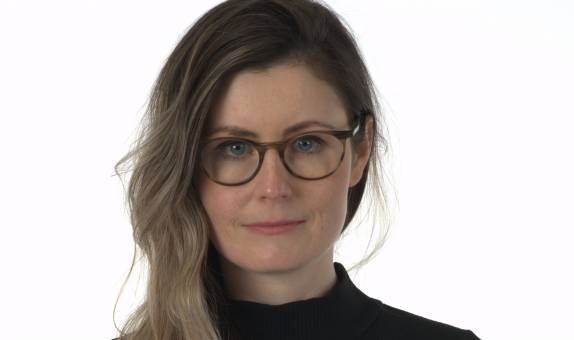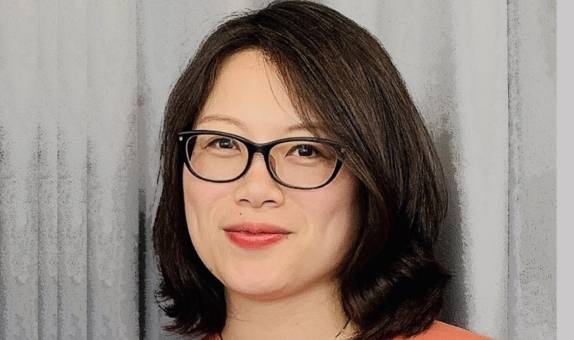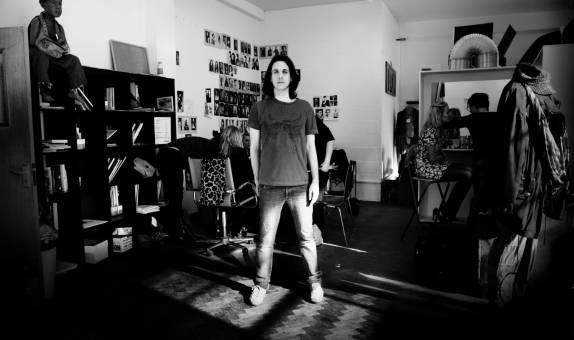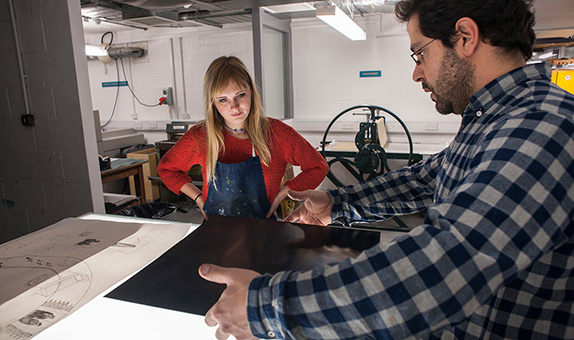Fashion Promotion and Communication BA (Hons)

Teaching Excellence Framework (TEF) Gold award
Our commitment to high quality teaching has been recognised with a TEF Gold rating. The University has received an overall rating of Gold, as well as securing a Gold award in the framework's two new student experience and student outcomes categories.
Why choose this course?
This course will empower you to discover your creative self and your future role in the fashion industry. It is a creative, exploratory, flexible, and dynamic approach to fashion communications. It combines cultural and business awareness alongside creative thinking and technical skills so that you can expand your knowledge and explore ideas.
The course encourages you to pursue and practice areas of personal interest, co-create projects and take ownership of your learning. You will learn the skills of image making, creative direction, graphic design and editorial copy needed to produce visual content for fashion brands. You will also explore how technologies such as augmented and virtual reality, and the relationship between physical retail environments and online digital platforms, provide new opportunities for creating innovative brand experiences.
Successful, creative people in fashion communications can combine art and design skills with commercial understanding and project management techniques. You will therefore develop the business and management skills needed to work in teams, working on a multitude of projects and collaborative industry briefs, in preparation for a career within the global fashion industry.
If you are enrolled on the 3-year BA Fashion Promotion and Communication course, you have the option to take a year out on placement in the UK, or to select that pathway upon admission/application to the course. You will take an additional year between the second and final year of study (4 years study total) to be spent in 36 weeks of full-time supervised work placement or study abroad exchange, or a combination of both.
You will work on a multitude of projects and industry briefs that will allow you to discover your creative self and your future role in the fashion industry. You can also join our student-powered creative agency, Studio KT1.
| Attendance | UCAS code | Year of entry |
|---|---|---|
| 3 years full time | P993 | 2024 (Clearing) 2025 |
| 4 years full time including sandwich year | P994 | 2024 (Clearing) 2025 |
Please note: Teaching on this course may take place on more than one KU campus.
| Main Location | Kingston School of Art, Knights Park |
Reasons to choose Kingston
- Through our creative agency, you'll have the opportunity to work on paid live briefs for organisations.
- The Kingston Fashion Department is globally renowned and all courses work closely with industry partners.
- All students have access to our world-class workshops and making spaces, including digital media labs, 3D workshops, printmaking, film and photography facilities.
- Kingston University was ranked No. 2 in London and Top 10 in the UK for Media & Film Studies in the Guardian University Guide 2024.
The Art School Experience
As part of Kingston School of Art, students on this course benefit from joining a creative community where collaborative working and critical practice are encouraged.
Our workshops and studios are open to all disciplines, enabling students and staff to work together, share ideas and explore multi-disciplinary making.

What you will study
This course meets the growing demand for agile creatives who can work across a variety of changing media platforms and communication channels. It's just right for individuals who can combine ideation, visualisation and strategic thinking to create impactful advertising campaigns for fashion brands.
Year 1
Year 2
Optional Year
Final year
Compulsory modules
Fashion Promotion and Communications 1
30 credits
This module will introduce students to the practice of fashion promotion and the many platforms it uses to communicate. Students will be encouraged to research using a variety of primary and secondary research methodologies and tasked with forming experimental and exciting concepts for practice through a design process. This will be enabled through the use of trend and brand evaluation, speculation and cultural observation. The module will encourage critical and practical application of theory and observation through a series of experimental briefs and projects aimed at developing unique and individual responses.
Professional Practice 1
30 credits
This module will introduce students to the professional, technical and visual communication skills and techniques used within fashion promotion and encourage students to apply a variety of different communication methods to personal and original work. Students will be encouraged to consider visual narrative and storytelling through dynamic use of mediums including, but not limited to, new technology platforms and/or relevant design and presentation software. Traditional methods of communication will also be explored including, but not limited to, photography, illustration, and print publication. There is a strong emphasis on technical practice and production as well as personal skills development enabling professional approaches and collaborative engagement. . As part of this, the module helps to ensure that all students benefit from the Personal Tutor Scheme, and of input provided by the Careers & Employability Service, the Enterprise Team, and Lynda.com, by embedding all these into the curriculum.
Fashion Context
30 credits
This module will develop a sound understanding of the factors that affect the global business of fashion trading, from concept to customer including the broader ethical and cultural issues that impact upon business decisions. Students will gain knowledge of the channels with which the contemporary fashion industry communicates with the consumer to promote product or services. The module will help students to contextualise their personal objectives by underpinning the creative aspects of the course with considered business knowledge and theoretical fashion marketing principles.
Image, Text and Style: Themes in the History of Fashion Media
30 credits
This module presents thematic approaches to the study of fashion media formats through image-based lectures, workshop activities and screenings. Students will be introduced to the historical development of fashion media and promotion from multiple perspectives and through a transnational lens with an emphasis on the 1800s to the present day. Each session is intended to address concepts, debates and practices that have shaped and constructed our contemporary understanding of fashion media and promotion. The module engages with critical texts and case study research to enable students to examine the relationship between theory and practice in fashion communication and promotion and to develop an understanding of the emergence of fashion media as a global cultural response to modernity.
You will analyse fashion cycles, trends, channels, brand values, ethics, print promotion, photoshoots and social media marketing. You'll interpret briefs and transform the brand values of a fashion company into a coherent visual identity aimed at the desired audiences.
You'll study conceptualisation, visual narratives, artwork commission, branding, entrepreneurship, managing risk and creative strategy.
The variety of modules will develop your understanding and ensure you have the skills to operate successfully as a communicator in the fashion industry.
Compulsory modules
Fashion Promotion and Communications 2
30 credits
This module will build on the skills and processes developed in Fashion Promotion and Communication 1 with a direct application to professional and industry practice. Students will be encouraged to advance their research methodologies and contextual understanding further, with added evaluation, new resources and analysis of defined markets and consumer segments. They will underpin their creative outputs by evaluating data and marketing metrics when developing creative outputs in relation to brand communication and present their work in a professional manner to an identified audience. Students are encouraged to utilise and develop advanced visual communication skills to explore new creative agendas and new creative, visual platforms.
Professional Practice 2
30 credits
This module will focus on the following competences to develop and enhance student employability skills: professionalism, self-awareness, technical advancement, specific career routes and continuing self-development practices. Students will be able to define their individual creative and philosophical identity and begin to consider their role in the industry, developing visual and written communication material reflecting their strengths and potential career choices. Students will develop a range of outputs which will support and prepare them as they move directly into Level 6 or choose to engage with industry or study abroad as part of the optional Placement year. The personal tutor programme is embedded within the module to support their academic progress.
Fashion Direction
30 credits
This module gives students the opportunity to work on projects that are defined by external stakeholders and that require high levels of professionalism, understanding and engagement. All of which culminates in the students presenting and justifying their creative outputs and/or promotional strategies to external audiences. Students will also be able to further develop their own individual identity in response to internal and external briefs which builds on prior learning, individual strengths, and career aspirations.
Critical Issues in Fashion Media: Research and Practice
30 credits
This module builds on historical and thematic content introduced at Level 4, looking closely and in more depth at key theoretical concepts that shape the study fashion media and promotion. The module explores a range of contemporary issues related to fashion media and promotion and equips students with conceptual and theoretical tools to debate and discuss these in their work. In addition, students are introduced to a range of research methodologies though case studies and practical activities that reflect the issues explored through the module's contemporary content.
Work Placement/Study Abroad Year
Kingston School of Art also offers the possibility to the student enrolled on the 3-year BA Fashion Promotion and Communication course to take a year out on placement in the UK, or to select that pathway upon admission/application to the course.
The undergraduate student may choose to take an additional year between the second and final year of study (4 years study total) to be spent in 36 weeks of full-time supervised work placement or study abroad exchange, or a combination of both.
It is the student's responsibility to research and secure their own placement opportunity. However, there is support available for students in the department, looking to secure a placement through the placement officer can help you find a placement through a network of established contacts with employers.
First year students will get a general introduction to placement year during their Welcome Week and second year students will get specific seminars, workshops, and individual meetings to be prepared to write a professional CV, cover letter and an appropriately curated format of their recent works.
Continuous guidance and support will be given through the application process as the placement officer will promote and circulate any suitable opportunity to you and during the entire placement year out through scheduled visits and meetings.
For study abroad, students will apply to the institution of their choice and go through the appropriate selection process.
You will further your knowledge and refine the skills needed to become a fashion industry practitioner. You will study cultural entrepreneurship and explore ways of building a sustainable creative career.
The major project in your final year will be a visual project, business or marketing plan, or consultancy project for a company. Through it, you'll research and identify a current fashion communication challenge and provide visual solutions, tailored for the chosen audience.
Compulsory modules
Fashion Promotion Campaign (capstone project)
30 credits
This module represents the culmination of a student's course of study and should synthesize all elements of subject theory, business application, contextual thinking, personal and professional practice into a self-directed capstone project intended for a professional portfolio/showcase. This module offers the opportunity for students to clearly state their intentions, by defining and visually articulating their personal position and ambition within an industry context.
Professional Showcase
30 credits
This module will engage the students in the practice of developing a visually fluent promotional activity targeted at a specified audience and featuring their individual body of work. This module is designed to help the students to formulate their exit strategy and enhance their professional knowledge of the global fashion industry in terms of promotion and communication and to develop skills and outputs with a focus on their future career, providing opportunities for research, analysis, and documentation of their work. As part of this, students benefit from the Personal Tutor Scheme, and input by the Careers & Employability Service, the Enterprise Team, Kingston Hub, and Lynda.com.
Fashion Realisation
30 credits
This module is a combination of the preparation for the Fashion Promotion Campaign (Capstone Project) module whereby students negotiate and visualize a brief, that has a clear concept, narrative or message, is creatively challenging and demonstrates a mature and responsible approach to individual practice in the context of professional industry expectations. This negotiated brief will inform the practice and realisation of the capstone project. Students will also engage with external projects/competitions aimed to further develop their practice, build upon their existing body of work and to contextualise their work competitively with their peers both internally and as part of the wider global creative community.
Dissertation
30 credits
The module enables students to carry out a piece of independent research in the field of fashion studies that relates to their own interests and practice. Over the course of the module students will initiate and develop an individual research topic; identify and evaluate appropriate sources and research methods, manage their study time, engage with, and respond to tutorial dialogue and peer feedback and apply critical and analytical tools to produce a 7,000-8,000-word dissertation.
Future Skills
Knowledge to give you the edge
Embedded within every course curriculum and throughout the whole Kingston experience, Future Skills will play a role in shaping you to become a future-proof graduate, providing you with the skills most valued by employers such as problem-solving, digital competency, and adaptability.
As you progress through your degree, you'll learn to navigate, explore and apply these graduate skills, learning to demonstrate and articulate to employers how future skills give you the edge.
At Kingston University, we're not just keeping up with change, we're creating it.

Entry requirements
If you would like to join us through Clearing 2024, please call our Clearing line on 0800 0483 334 (or +44 020 8328 1149 if you are calling from outside the UK) and speak to our friendly and knowledgeable hotliners who will be able to provide information on available courses and will guide you through your options.
Please note the entry requirements listed below are for 2025 entry only.
Teaching and assessment
Scheduled learning and teaching on this course includes timetabled activities including lectures, seminars and small group tutorials.
It may also include critiques, project work, studio practice and performance, digital labs, workshops, and placements.
Gallery of student work
Who teaches this course?
Course director Anthony has extensive experience within the creative industries. He has been Academic Director/Head of Fashion for an international design institute in Beijing, Head of Design at AUB Bournemouth, and Head of The Fashion Institute at Manchester Met. Currently he is the Head of Department of Fashion at Kingston University.
The Kingston School of Art teaching team is formed of current practitioners, with extensive experience and professional links. They will help you develop your skills, networks and gain access to industry contacts. Their expertise and knowledge is closely matched to the content of the modules on this course.
Academic teaching is supported by workshop staff, technicians, visiting speakers and guest lecturers who enhance your learning.
Facilities
You'll use our studio spaces and facilities to experiment and explore new ways to push the boundaries of projects and open discourse across disciplines.
Collaborative and multi-disciplinary teamwork is actively encouraged between students, across faculty courses, international institutions and with industry.
Throughout the course, you'll be encouraged to explore and develop expertise in current design approaches, techniques, media, and application including branding, editorial, interactive design, packaging and 3D design, advertising, information design, digital moving image, sustainable and experiential design.
Skills and techniques such as typography, photography, moving image, printmaking, rapid proto-typing, analysis and research, human factors, presentation, interactive and graphic software all support project work by helping realise solution-led ideas.
Course fees and funding
Additional costs
Depending on the programme of study, there may be extra costs that are not covered by tuition fees which students will need to consider when planning their studies. Tuition fees cover the cost of your teaching, assessment and operating University facilities such as the library, access to shared IT equipment and other support services. Accommodation and living costs are not included in our fees.
Where a course has additional expenses, we make every effort to highlight them. These may include optional field trips, materials (e.g. art, design, engineering), security checks such as DBS, uniforms, specialist clothing or professional memberships.
After you graduate
Fashion Promotion and Communication offers a broad range of careers, including stylists, art directors, public relations experts, social networkers, online marketers, campaign developers, and content creators in the fashion communication, branding and advertising industries. Once you graduate, you will be ready to combine your conceptual and design skills together with a commercial understanding of the fashion industry to create relevant and effective fashion media.
Links with business and industry
The fashion department has a long history and exceptional experience and interaction with Industry with many graduates undertaking paid placements and/or graduate employment across the international creative industries at all levels of the market including:
- Acne, Alexander McQueen, All Saints, Artek, ASOS;
- Boden, Burberry;
- Chanel, Chloe, COS;
- Dior, Donna Karan;
- Givenchy;
- Hugo Boss, H&M;
- Jack Wills, JLP;
- Max Mara, Mulberry;
- Old Navy;
- Pringle, Pull & Bear, Puma;
- River Island;
- Stella McCartney;
- Toast, Tom Ford;
- Victoria Beckham;
- ZARA
Requests come from many of the brands for internship and graduate roles relevant to promotional practice and included job titles such as: Visual Merchandiser, Stylist Coordinator, Content Marketing Assistant, SEO Assistant, Brand Assistant, Creative Executive, Digital Production Assistant, Online image producers, Press Assistants and Digital Marketing professionals.
This course will benefit from existing links as well as newer employers from across the sector that includes, traditional retail, fashion, cosmetic brands as well as new online platforms and traditional PR agencies.
Key information set
The scrolling banner(s) below display some key factual data about this course (including different course combinations or delivery modes of this course where relevant).
Course changes and regulations
The information on this page reflects the currently intended course structure and module details. To improve your student experience and the quality of your degree, we may review and change the material information of this course. Course changes explained.
Programme Specifications for the course are published ahead of each academic year.
Regulations governing this course can be found on our website.



